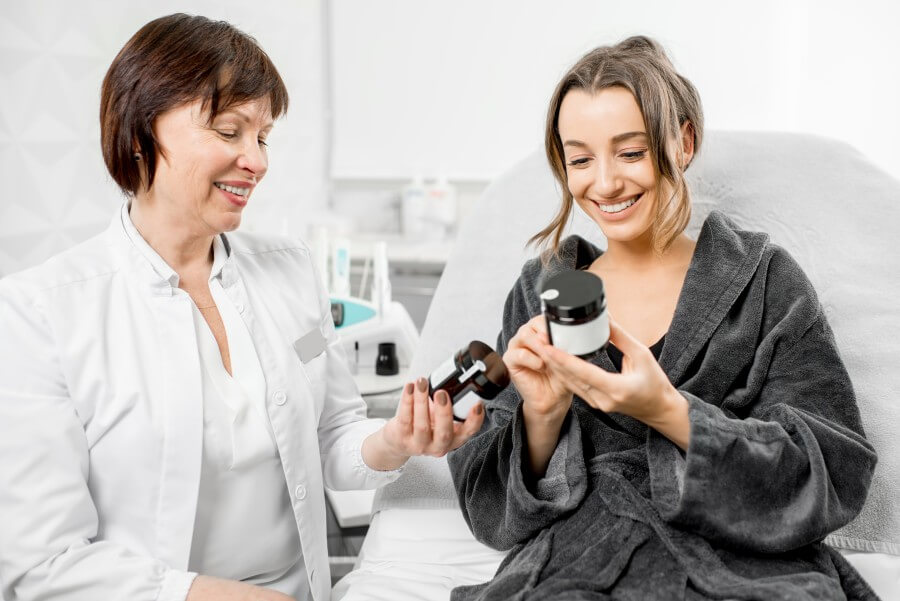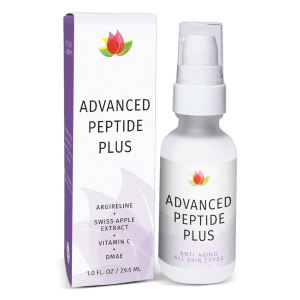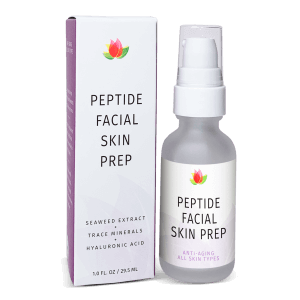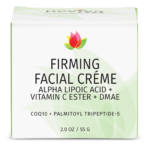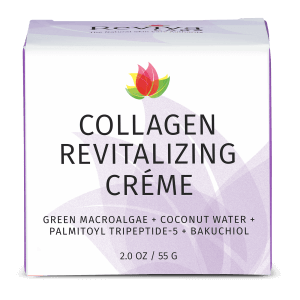Ingredients, Reviva Labs, Skin Care
Which Peptide is Best for Skin?
Peptides have become a popular ingredient in skincare products, but not all peptides are created equal. With numerous options available, it can be challenging to determine which peptide is best for your skin. This article will explore the benefits of various peptides and highlight the top choices for achieving healthy, youthful skin.
Understanding Peptides
Peptides are short chains of amino acids that serve as the building blocks of proteins, such as collagen and elastin. These proteins are crucial for maintaining the skin’s structure and elasticity. As we age, the production of these proteins decreases, leading to wrinkles and sagging skin. By incorporating peptides into your skincare routine, you can stimulate collagen production and improve the overall appearance of your skin.
The Role of Collagen
Collagen is the most abundant protein in the human body and plays a vital role in maintaining skin firmness and elasticity. Unfortunately, collagen production starts to decline in our mid-20s, leading to the visible signs of aging. Peptides can help boost collagen production, making them a valuable addition to any anti-aging skincare regimen.
Popular Peptides in Skincare
One of the most well-known peptides in skincare is Matrixyl, a peptide blend that includes palmitoyl pentapeptide-4. Matrixyl is renowned for its ability to stimulate collagen production and reduce the appearance of fine lines and wrinkles. Clinical studies have shown that Matrixyl can nearly double the amount of collagen in the skin, leading to firmer, smoother skin. According to a study published in the International Journal of Cosmetic Science, participants using Matrixyl experienced a 33% decrease in wrinkle density over a 12-week period.
A study published in the American Journal of Clinical Dermatology found that Argireline reduced wrinkle depth by up to 30% after 30 days of use.
Another powerful peptide is Argireline, also known as acetyl hexapeptide-8. Argireline works by inhibiting the release of neurotransmitters that cause facial muscles to contract, similar to the mechanism of Botox. This results in a reduction of expression lines, particularly around the eyes and forehead. A study published in the American Journal of Clinical Dermatology found that Argireline reduced wrinkle depth by up to 30% after 30 days of use.
The Benefits of Copper Peptides
Copper peptides are another popular choice in anti-aging skincare. These peptides combine copper ions with small protein fragments, which together promote wound healing and collagen synthesis. Copper peptides have also been shown to improve skin elasticity and reduce inflammation. Research published in the Journal of Drugs in Dermatology highlighted that copper peptides can enhance skin’s firmness and reduce the appearance of fine lines and wrinkles.
Peptides for Hydration
In addition to their anti-aging benefits, some peptides can also improve skin hydration. Palmitoyl tripeptide-5 is known for its ability to boost hyaluronic acid production, which helps retain moisture in the skin. Hyaluronic acid is a powerful humectant that can hold up to 1,000 times its weight in water, making it essential for maintaining hydrated, plump skin. By incorporating peptides that stimulate hyaluronic acid production, you can achieve a more hydrated and youthful complexion.
Combining Peptides for Maximum Results
While individual peptides offer unique benefits, combining different types can provide even more significant results. Many skincare products feature peptide blends designed to target various aspects of skin aging. For example, a product that combines Matrixyl with Argireline and copper peptides can simultaneously boost collagen production, reduce expression lines, and improve skin elasticity. This multi-faceted approach can lead to more comprehensive anti-aging benefits.
Choosing the Right Peptide Product
When selecting a peptide product, it’s essential to consider the formulation and concentration of the peptides. Look for products that contain a high concentration of active peptides and are formulated to penetrate the skin effectively. Serums are often the best choice for delivering peptides deeply into the skin, as they typically have a higher concentration of active ingredients and a lightweight texture that absorbs quickly.
The Importance of Consistency
To see the best results from peptide-based skincare products, consistency is key. Incorporate the product into your daily skincare routine and use it as directed. It can take several weeks to months to see noticeable improvements in your skin, so be patient and diligent with your application.
Potential Side Effects
While peptides are generally well-tolerated, it’s essential to be aware of potential side effects. Some individuals may experience mild irritation or redness, particularly when first introducing a peptide product into their routine. If you have sensitive skin, it’s a good idea to start with a lower concentration and gradually increase as your skin adjusts. Additionally, always perform a patch test before using a new product to ensure you don’t have an adverse reaction.
Peptides and Other Skincare Ingredients
Peptides can be used in conjunction with other active ingredients for enhanced results. For example, combining peptides with antioxidants like vitamin C can provide additional protection against environmental damage and further boost collagen production. Similarly, using peptides alongside hyaluronic acid can improve hydration and plumpness, creating a more youthful appearance. When layering products, apply water-based serums first, followed by oil-based serums or moisturizers to ensure optimal absorption.
Natural Sources of Peptides
While many peptide products are synthetically derived, peptides can also be found in natural sources. Some plant-based ingredients, such as soy and rice proteins, contain peptides that offer similar benefits to their synthetic counterparts. Incorporating products with natural peptides can be an excellent option for those seeking a more natural approach to skincare.
The Future of Peptides in Skincare
As research continues to advance, new peptides and peptide-based technologies are being developed, offering even more effective solutions for anti-aging and skin health. Innovations such as peptide-infused microneedling and peptide-based delivery systems are on the horizon, promising to revolutionize the way we approach skincare.
Conclusion: Peptides Are Good
Peptides offer a wide range of benefits for the skin, from boosting collagen production to improving hydration and reducing the appearance of fine lines and wrinkles. Whether you choose Matrixyl, Argireline, copper peptides, or a combination of these powerful ingredients, incorporating peptides into your skincare routine can help you achieve a healthier, more youthful complexion. Remember to select high-quality products, use them consistently, and be patient as you wait for the transformative effects to take hold. With the right approach, peptides can become a cornerstone of your skincare regimen, helping you maintain beautiful, resilient skin for years to come.



